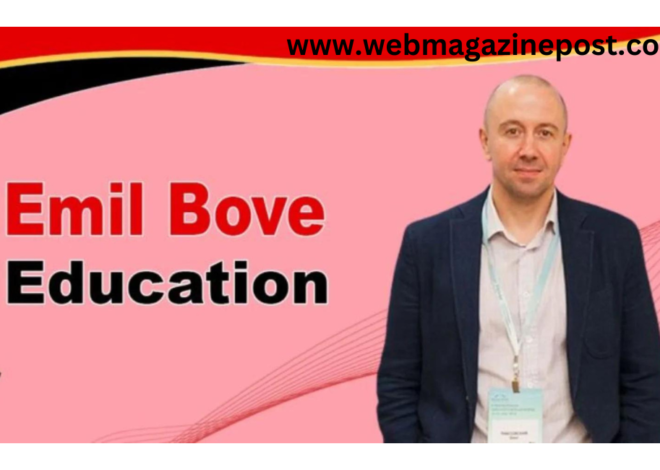
Professional Development Goals: 100% Comprehensive Guide to Achieving Career Success
Introduction to Professional Development Goals
When it comes to career success, setting professional development goals is like charting a course on a map. Without a clear direction, you might find yourself lost or stagnant. But with well-defined goals, you can navigate your career path with confidence and purpose.
Why Professional Development Goals Matter
Professional development goals aren’t just a buzzword in the corporate world; they are essential for anyone looking to grow and succeed in their career. Here’s why they matter:
- Enhancing Skills and Knowledge: Whether you’re learning new software or improving your public speaking, setting goals helps you stay ahead of the curve.
- Boosting Career Advancement: Climbing the corporate ladder or transitioning to a new role becomes more achievable with clear goals.
- Increasing Job Satisfaction: Achieving your goals can lead to greater fulfillment and motivation at work.
How to Set Effective Professional Development Goals

Setting goals might seem straightforward, but effective goal-setting requires careful thought and planning.
- Assessing Current Skills and Knowledge: Start by taking stock of where you are. What are your strengths and weaknesses?
- Identifying Career Aspirations: Think about where you want to be in the next 5 or 10 years. What positions or fields excite you?
- Setting SMART Goals: Ensure your goals are Specific, Measurable, Achievable, Relevant, and Time-bound.
Types of Professional Development Goals
Understanding the different types of goals can help you create a balanced and comprehensive plan.
- Short-Term Goals: These are objectives you can accomplish within a few months to a year.
- Long-Term Goals: These are goals that might take several years to accomplish.
Skills-Based Goals
Skills are the foundation of your professional development. Focus on these key areas:
- Technical Skills: Keep up with the latest technology and tools in your industry.
- Soft Skills: Enhance your communication, teamwork, and problem-solving capabilities.
- Leadership Skills: Develop your ability to lead and inspire others.
Knowledge-Based Goals
Staying informed and educated is crucial for career growth.
- Continuing Education: Enroll in courses and programs to expand your knowledge.
- Certification and Licensing: Obtain the necessary credentials to advance in your field.
- Industry Research: Stay updated on trends and innovations in your industry.
Career Advancement Goals
Advancing your career often requires setting specific goals related to job opportunities.
- Promotions: Aim for higher positions within your current organization.
- New Job Opportunities: Explore roles in different companies or industries.
- Networking: Build and maintain professional relationships that can open doors.
Personal Development Goals

Balancing personal growth with professional development is key to long-term success.
- Work-Life Balance: Ensure you’re not burning out by managing your time effectively.
- Stress Management: Learn techniques to handle stress and maintain mental health.
- Time Management: Improve your productivity by prioritizing tasks and avoiding procrastination.
Creating an Action Plan
An action plan serves as your roadmap to reaching your goals.
- Breaking Down Goals into Manageable Steps: Divide your goals into smaller, actionable tasks.
- Setting Deadlines: Establish timelines to keep yourself on track.
- Monitoring Progress: Regularly check your progress and make adjustments as needed.
Leveraging Resources for Professional Development
Utilize available resources to help you achieve your goals.
- Online Courses and Workshops: Take advantage of e-learning platforms and training sessions.
- Mentorship and Coaching: Obtain guidance from seasoned professionals.
- Professional Organizations and Conferences: Join groups and attend events to expand your network and knowledge.
Overcoming Challenges
Challenges are inevitable, but they can be overcome with the right mindset and strategies.
- Staying Motivated: Keep your end goal in mind and celebrate small victories.
- Dealing with Setbacks: Embrace failures and turn them into stepping stones.
- Adjusting Goals as Needed: Be flexible and willing to modify your goals based on new information or circumstances.
Measuring Success
Tracking your progress and measuring success is crucial for staying on course.
- Tracking Progress: Use tools and techniques to monitor your achievements.
- Seeking Feedback: Regularly ask for input from peers, mentors, and supervisors.
- Reflecting on Achievements: Take time to appreciate how far you’ve come and plan your next steps.
Examples of Professional Development Goals
Concrete examples can provide inspiration and clarity.
- Case Study: Technical Skill Improvement: Jane aimed to master a new coding language and did so by taking online courses and practicing daily.
- Case Study: Leadership Development: Mark wanted to move into management, so he focused on developing his leadership skills through workshops and mentoring.
- Case Study: Career Transition: Sarah transitioned from marketing to data analysis by setting goals for certification and networking within her new field.
Conclusion
Setting professional development goals is a dynamic and ongoing process. By regularly assessing your skills, setting SMART goals, and leveraging resources, you can achieve significant career growth and personal satisfaction. Remember, the journey of professional development is unique for everyone, so tailor your goals to fit your aspirations and circumstances.
FAQs
What are professional development goals?
Professional development goals are specific objectives related to improving your skills, knowledge, and career prospects.
How do I identify my professional development goals?
Start by assessing your current skills and career aspirations, then set SMART goals that align with your long-term vision.
What resources can help with professional development?
Online courses, mentorship, professional organizations, and industry conferences are excellent resources.
How often should I review my professional development goals?
Review your goals at least quarterly to ensure you’re on track and make any necessary adjustments.
Can professional development goals change over time?
Yes, as you grow and your career evolves, it’s important to revisit and revise your goals to reflect new priorities and opportunities.


